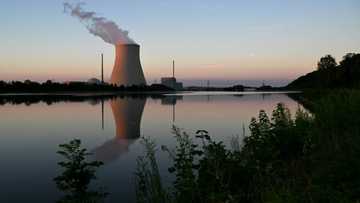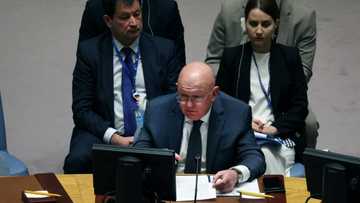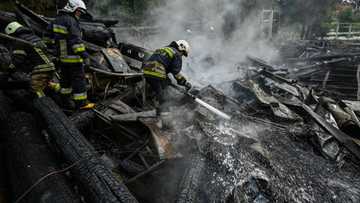Ukraine backs UN peacekeeping force at occupied nuclear plant
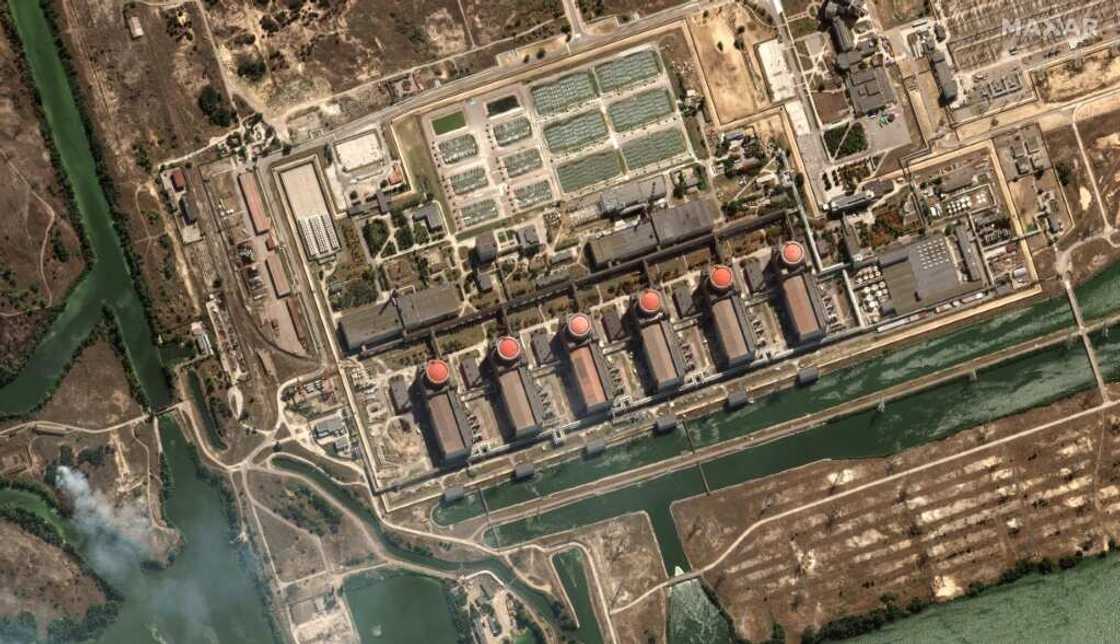
Source: AFP
PAY ATTENTION: Click “See First” under the “Following” tab to see Legit.ng News on your Facebook News Feed!
Ukraine's nuclear operator said Wednesday it would support the deployment of UN peacekeepers at the Russian-occupied Zaporizhzhia plant, a day after the UN atomic watchdog called for a security zone around the site.
The International Atomic Energy Agency (IAEA) released a report Tuesday saying the situation at the nuclear power plant, Europe's largest, was "untenable". The agency sent a team to the site last week.
It called for a demilitarised security zone to be established at the plant in southern Ukraine, which the Russians took over in March.
There has been repeated shelling around the site, sparking fears of a nuclear disaster.
Ukraine's nuclear operator Energoatom said Wednesday it would support the deployment of UN peacekeepers to the facility and called for Russian troops to leave.
"One of the ways to create a security zone at the (plant) could be to set up a peacekeeping contingent there and withdraw Russian troops" Energoatom chief Petro Kotyn said in remarks broadcast by Ukrainian TV.
PAY ATTENTION: Join Legit.ng Telegram channel! Never miss important updates!
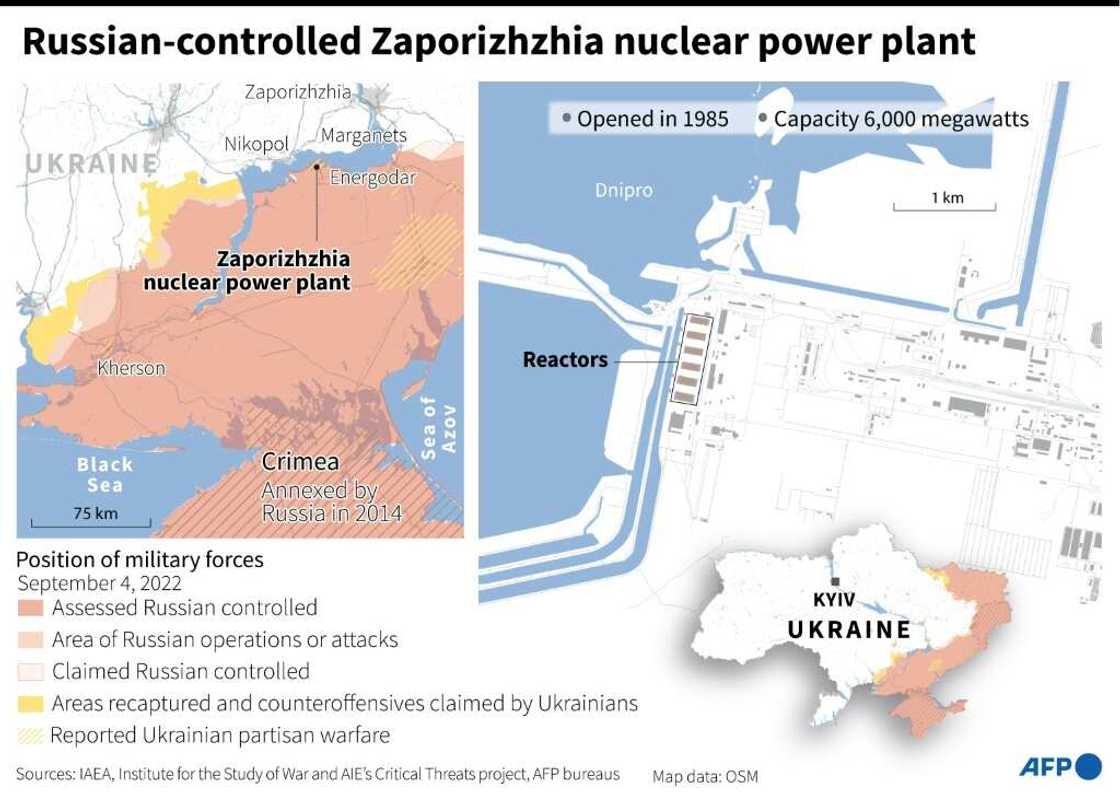
Source: AFP
Ukraine and Russia have traded blame for shelling at the site, which continued Tuesday even as the IAEA report was released.
The head of Ukraine's nuclear security agency warned Wednesday that a nuclear accident at the site could affect neighbouring countries.
Damage to the active zone of the reactor would "have consequences not only in Ukraine, but also definitely beyond its borders" Oleg Korikov told reporters.
Russian President Vladimir Putin said Wednesday there was "no military equipment" at the plant in southern Ukraine, adding that he "certainly trusts" the IAEA report.
But earlier, Moscow had said it wanted "clarifications" from the IAEA.
"There is a need to get additional clarifications because the report contains a number of issues," Foreign Minister Sergei Lavrov told Interfax news agency.
"I will not list them but we requested these clarifications from the IAEA Director General."
'Fukushima-like'
A 14-strong team from the IAEA visited Zaporizhzhia last week, and at least two members of the team were to remain there on a permanent basis to ensure the facility's safety.
But on Monday, the last working reactor was disconnected from the grid after shelling caused a fire.
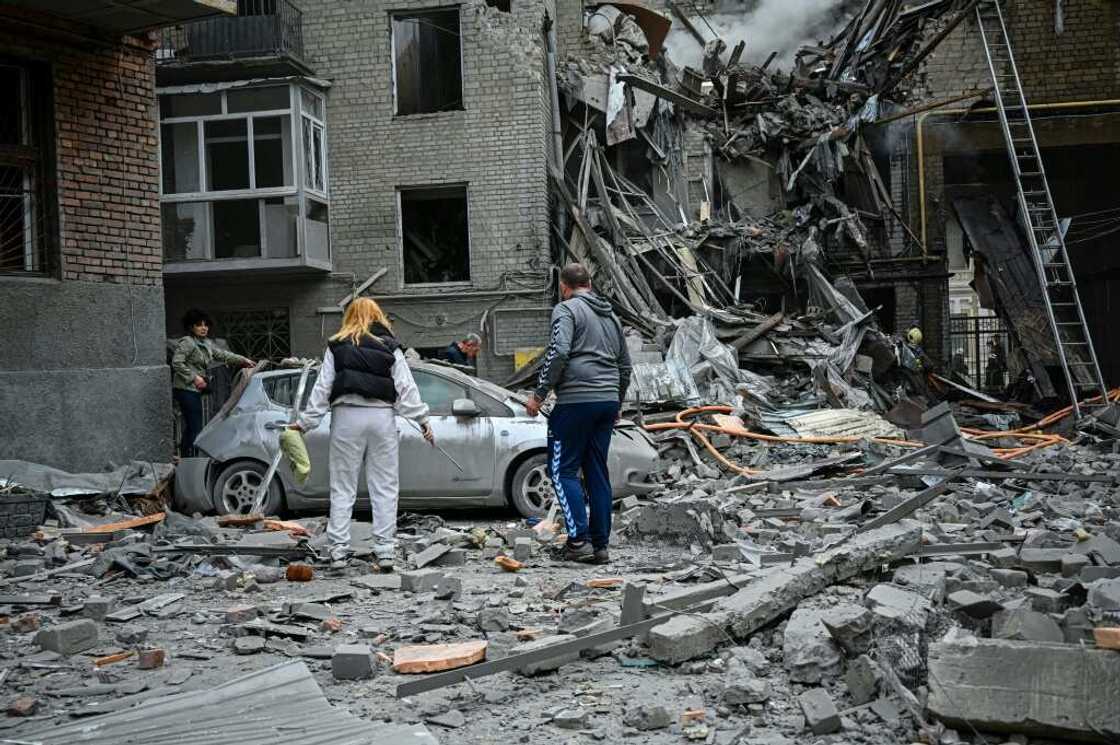
Source: AFP
Karine Herviou, the head of the Institute for Radiation Protection and Nuclear Safety in France, warned of the risk of a "Fukushima-type scenario", referring to the 2011 Japanese nuclear disaster.
"We are not immune to strikes (at the plant) which, even if they do not directly affect the reactors, could lead to radioactive releases into the environment," she told FranceInfo radio on Wednesday.
Gas, grain
As the war rages into its seventh month, with tens of thousands killed and millions displaced, the global cost of the crisis is unfolding. Countries are confronted with skyrocketing energy prices and serious grain shortages.
Europe in particular is bracing for a tough winter ahead, especially after Russia halted natural gas deliveries via the key Nord Stream pipeline to the continent.
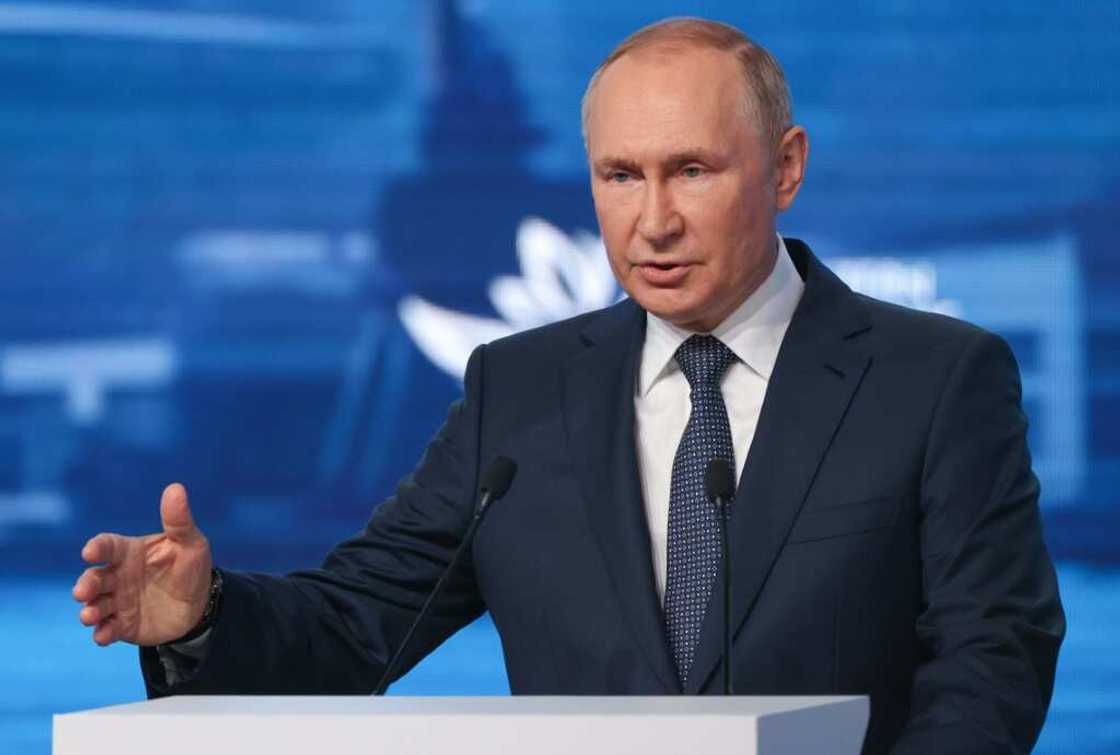
Source: AFP
Putin on Wednesday denied Russia was using energy as a weapon, as it faces a barrage of Western sanctions over its February 24 invasion of Ukraine.
"They say that Russia uses energy as a weapon. More nonsense! What weapon do we use? We supply as much as required according to requests" from importers, Putin told the Eastern Economic Forum in the Pacific port city of Vladivostok.
He added that Moscow would stop delivering oil and gas supplies to countries that introduced price caps, as some Western countries are considering.
"We will not supply anything at all if it is contrary to our interests, in this case economic (interests)," he told the forum.
"No gas, no oil, no coal, no fuel oil, nothing."
The invasion has also wrought havoc on grain exports from Ukraine, one of the world's largest grain exporters, which was forced to halt almost all deliveries after the invasion, sparking a global food crisis.
Grain exports across Black Sea ports resumed in July after Kyiv and Moscow signed a deal with the United Nations and Turkey acting as guarantors.
But Putin on Wednesday said most of the grain had been shipped to EU countries, not developing nations.
"With this approach, the scale of food problems in the world will only grow," Putin said, warning that it could lead to "an unprecedented humanitarian catastrophe".
Source: AFP


